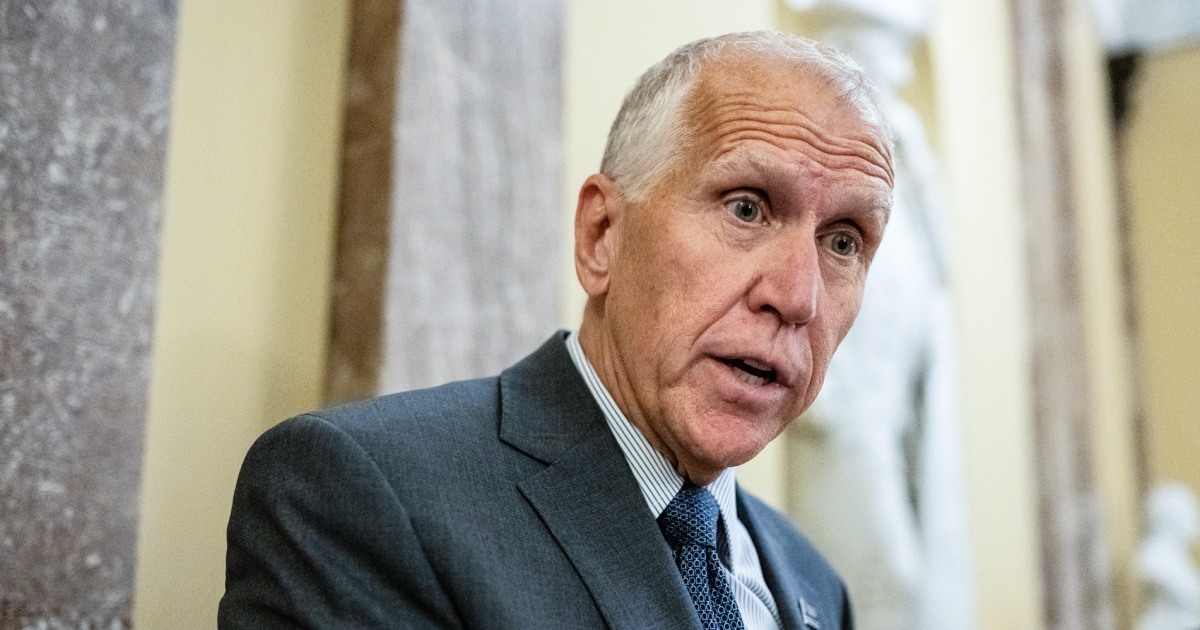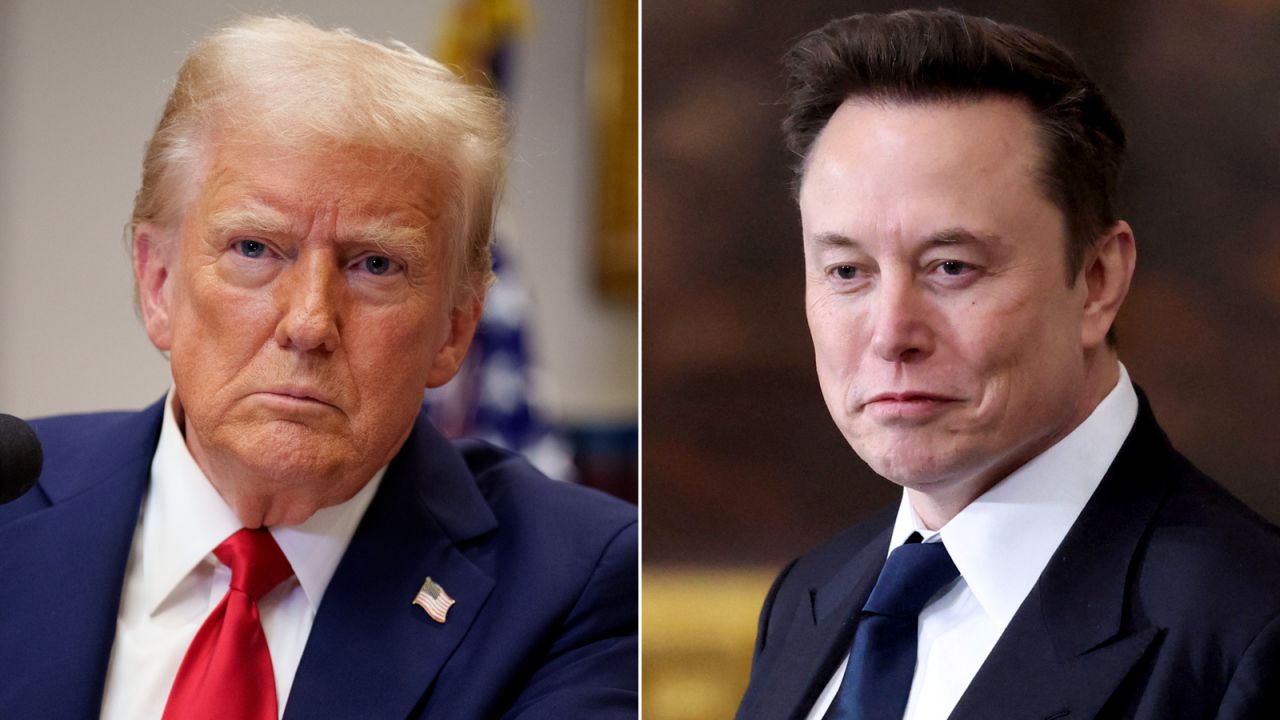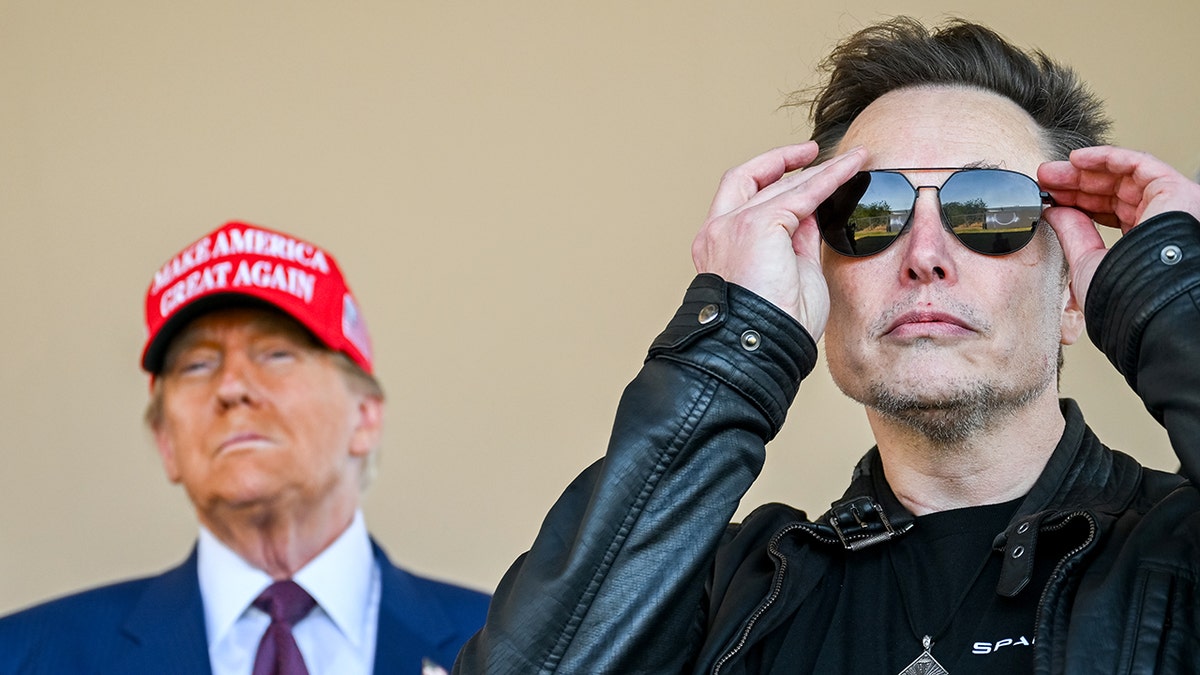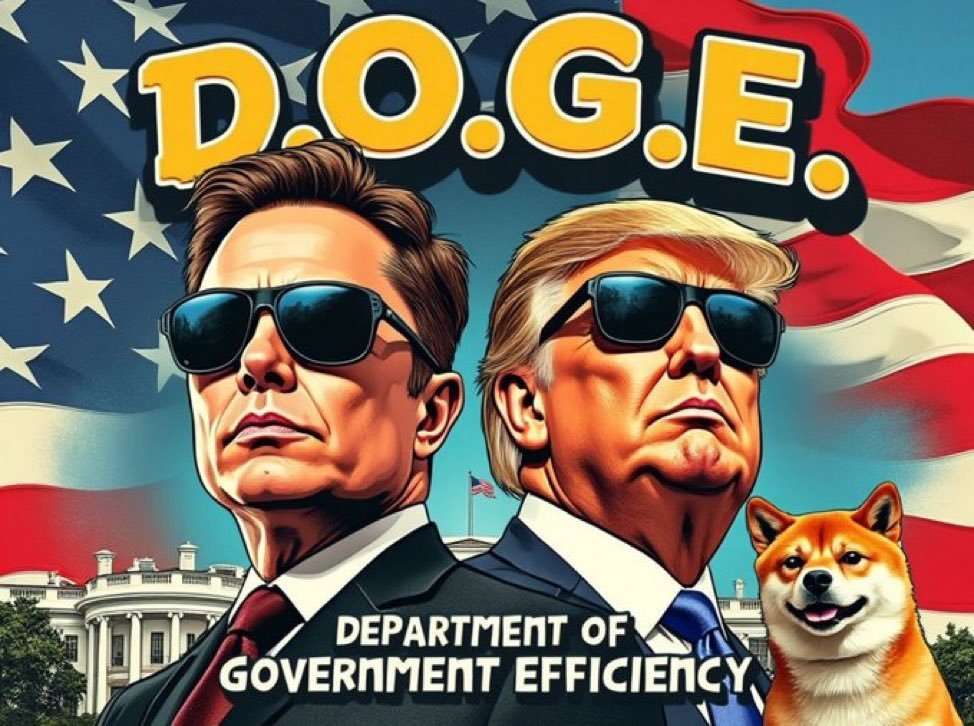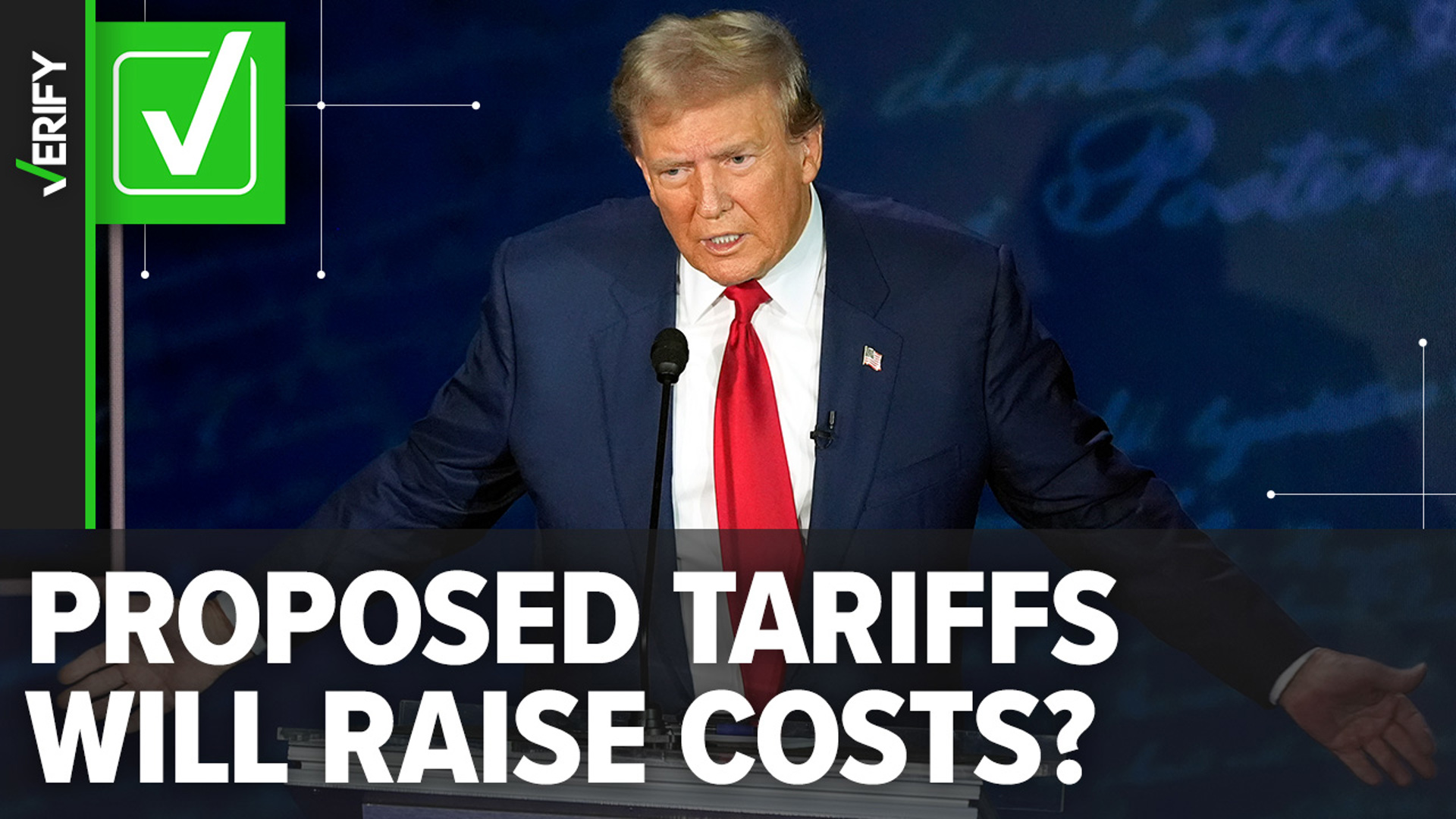Trump's Impact on Republicans, Tax Bill and Middle East

Senator Tillis Announces He Will Not Seek Reelection After Trump Attacks
In a surprising turn of events, Republican Senator Thom Tillis of North Carolina has announced that he will not be seeking reelection next year. This announcement comes after President Trump publicly attacked Tillis for being one of only two Senate Republicans to vote against starting debate on the GOP's tax and spending bill.
The Tax Bill and Trump's Influence
The tax bill, which was heavily influenced by President Trump, has been a hot topic of debate in recent months. The bill includes provisions such as "MAGA accounts" and has been touted as a major accomplishment for the Trump administration. However, Tillis' decision to vote against starting debate on the bill shows that not all Republicans are in alignment with the President's vision.
The White House and South African Refugees
In a separate but related issue, the Trump administration has recently announced their intention to give refugee status to white South Africans. This decision has been met with mixed reactions, as many white South Africans do not want to leave their country and others feel that they are being unfairly portrayed as victims by the President.
A Triumphant Return and Targeting Music Legends
President Trump returned from his trip to the Middle East to a flurry of controversy. On the same day, he took aim at music legends Taylor Swift and Bruce Springsteen, as well as the Supreme Court. This trifecta of attacks shows that Trump is not afraid to take on anyone who does not align with his views.
Qatar and the Middle East Tour
As part of his Middle East tour, President Trump is set to visit Qatar and meet with Syrian President Ahmad al-Sharaa. This visit and meeting have significant implications for the region and could potentially lead to new policies and partnerships.
The Odd Man Out and a Historic Opportunity
As Trump's trip wraps up, experts are pointing to the fact that Israeli Prime Minister Benjamin Netanyahu was not included in the itinerary as a possible rift between the two leaders. However, others see this as a historic opportunity for Israel to take action and make a significant impact in the region.
Conclusion
In conclusion, Senator Tillis' decision not to seek reelection and the ongoing controversy surrounding the tax bill and White House policies show that Trump's influence is still a major factor in the Republican party. As his Middle East tour comes to a close, it remains to be seen what impact these recent events will have on the region and the world as a whole.
About the People Mentioned
Thom Tillis
Thomas Roland Tillis, known as Thom Tillis, is an American politician serving as the U.S. Senator for North Carolina. Born on August 30, 1960, in Jacksonville, Florida, Tillis grew up in a working-class family and faced financial challenges early in life. After high school, he worked as a warehouse records clerk before pursuing higher education, earning a bachelor's degree from the University of Maryland University College in 1997[1][2]. Tillis built a successful career in the private sector, working as an executive at IBM and a partner at PricewaterhouseCoopers. His 29-year tenure in technology and management consulting provided him with a deep understanding of policy-making and organizational management[2][4]. He transitioned into public service, serving as a member of the Cornelius Board of Commissioners and later as the PTA president at Hopewell High School. In 2006, he was elected to the North Carolina House of Representatives, where he served as Speaker from 2011 to 2014[2][3]. Tillis was first elected to the U.S. Senate in 2014 and re-elected in 2020. He is a member of several key Senate committees, including Finance, Veterans’ Affairs, and Judiciary[3][5]. As Senator, Tillis has focused on pragmatic policy solutions and job creation. Recently, he has been involved in sponsoring legislation such as the National Park System Long-Term Lease Investment Act[5]. Tillis resides in Huntersville, North Carolina, with his wife Susan, and they have two grown children[2][3].
Donald Trump
Donald John Trump, born June 14, 1946, in Queens, New York, is an American businessman, media personality, and politician. He graduated from the University of Pennsylvania’s Wharton School in 1968 with a degree in economics. In 1971, he took over his family’s real estate business, renaming it the Trump Organization, through which he expanded into building and managing skyscrapers, hotels, casinos, and golf courses. Trump gained widespread fame as the host of the reality TV show *The Apprentice* from 2004 to 2015, which helped establish his public persona as a successful entrepreneur. Trump entered politics as a Republican and was elected the 45th president of the United States, serving from 2017 to 2021. His presidency was marked by significant policy actions including tax cuts, deregulation, the appointment of three Supreme Court justices, renegotiation of trade agreements (notably replacing NAFTA with the USMCA), and a focus on immigration control including border wall expansion. He withdrew the U.S. from international agreements such as the Paris Climate Accord and the Iran nuclear deal, and engaged in a trade war with China. His administration’s response to the COVID-19 pandemic was criticized for downplaying the virus’s severity. Trump was impeached twice by the House of Representatives—first in 2019 for abuse of power and obstruction, and again in 2021 for incitement of insurrection—but was acquitted by the Senate both times. After losing the 2020 election to Joe Biden, Trump challenged the results, culminating in the January 6, 2021, Capitol riot. He remains a central figure in American politics, having won the 2024 presidential election and returned as the 47th president in 2025, continuing to promote policies aimed at economic growth, border security, and military strength[1][2][3][4].
Taylor Swift
Taylor Alison Swift (born December 13, 1989, in Reading, Pennsylvania) is an American singer-songwriter renowned for her autobiographical songwriting and artistic reinventions, transitioning from country roots to global pop stardom[3][4]. She began her career as a teenage country artist, signing with Big Machine Records in 2005 and releasing her eponymous debut album in 2006, which included hits like "Teardrops on My Guitar." Her early albums, including *Fearless* (2008) and *Speak Now* (2010), combined country and pop elements, with *Fearless* earning widespread acclaim and multi-platinum status[3]. Swift's 2012 album *Red* marked a shift toward pop, culminating in the fully synth-pop oriented *1989* (2014), which solidified her status as a pop icon. Subsequent albums like *Reputation* (2017) explored darker, hip-hop-influenced themes, while later works such as *Folklore* and *Evermore* (both 2020) embraced indie-folk and alternative sounds. She has earned 14 Grammy Awards, including being the first woman to win Album of the Year three times, and is recognized as the highest-grossing live music artist and one of the best-selling musicians ever[3][4]. Her career highlights include numerous chart-topping singles such as "Love Story," "You Belong with Me," "Shake It Off," and "Anti-Hero," as well as record-breaking tours, most notably the 2023–2024 Eras Tour, widely praised for its scale and production[1][4]. Beyond music, Swift has engaged in philanthropy focusing on education and disaster relief and has taken significant creative control over her career, including re-recording her early albums to own her masters[1][4]. In recent developments, Swift released her 12th studio album, *The Life of a Showgirl*, on October 3, 2025. She remains highly relevant in popular culture and is engaged to professional football player Travis Kelce[4]. Her work extends to film, having appeared in the 2019 *Cats* movie and the 2020 documentary *Miss Americana* that chronicles her life and career[3].
Bruce Springsteen
Bruce Springsteen, born September 23, 1949, is an American singer, songwriter, and guitarist widely known as "The Boss." He is celebrated for pioneering heartland rock, blending commercially successful rock music with poetic and socially conscious lyrics that depict the American working-class experience. Since 1972, he has been primarily associated with the E Street Band, his longtime backing group. Springsteen has released 21 studio albums over six decades, with many considered classics of rock music[1][6]. His early albums, *Greetings from Asbury Park, N.J.* and *The Wild, the Innocent & the E Street Shuffle* (both 1973), earned critical praise but limited commercial success. He rose to international fame with the 1975 album *Born to Run*, whose title track became an anthem of youthful aspiration and escape. Subsequent albums like *Darkness on the Edge of Town* (1978) and *The River* (1980) continued to establish his reputation for evocative storytelling and energetic live performances[1][2][3]. Springsteen's 1984 album *Born in the U.S.A.* became his most commercially successful release, selling over 30 million copies worldwide and spawning seven Top 10 Billboard singles, including the iconic title track. The album earned Springsteen his first Grammy Award and cemented his status as a major cultural figure[1][3][6]. Throughout his career, Springsteen has been known for marathon concerts that can last over four hours, showcasing his dedication to connecting with audiences. He has won 20 Grammy Awards and was inducted into the Rock & Roll Hall of Fame in 2014 alongside the E Street Band[6]. In recent years, Springsteen has remained active in music and social causes, continuing to tour and release new work, maintaining his relevance in contemporary rock music[1][4].
Benjamin Netanyahu
Benjamin Netanyahu, born on October 21, 1949, in Tel Aviv, Israel, is a prominent Israeli politician and diplomat who has served as Prime Minister of Israel three times (1996–1999, 2009–2021, and from 2022 onwards). He began his career in the Israeli military's special operations and later transitioned into politics in the late 1980s, joining the Likud party[1][2]. Netanyahu first became prime minister in 1996, during which time he signed the Hebron and Wye Accords, advancing peace efforts with the Palestinians. His administration focused on economic reforms such as government privatization, liberalizing currency regulations, and reducing deficits. After losing the 1999 election, he served as foreign minister and finance minister before reclaiming the Likud leadership in 2005[1][3][4]. Returning as prime minister in 2009, Netanyahu formed a national unity government and proposed a demilitarized Palestinian state recognizing Israel as the Jewish state, emphasizing security concerns. His tenure was marked by fluctuating peace negotiations with the Palestinians and contentious policies including settlement expansions. He also maintained a hawkish stance on Iran and supported the Iraq war[1][3][5]. In 2022, Netanyahu made a political comeback as prime minister, leading a coalition that included far-right parties. His leadership during this period has been pivotal amid the 2023–2024 Israel-Hamas conflict, with significant domestic and international implications[2]. Netanyahu is Israel’s longest-serving prime minister and remains a central figure in Israeli politics, known for his strong security policies, economic reforms, and complex role in the Israeli-Palestinian conflict. His career has been marked by both political resilience and controversy, reflecting his enduring influence on Israel’s domestic and foreign affairs[2][3][5].
Ahmad al-Sharaa
Ahmed al-Sharaa, born on October 29, 1982, in Riyadh, Saudi Arabia, is a Syrian politician and former rebel commander. He is known by his nom de guerre Abu Mohammad al-Julani. Al-Sharaa's early life was marked by his involvement with extremist groups; he joined al-Qaeda in Iraq before the 2003 invasion. He was captured by American forces in 2006 and held until 2011, when he was released during the Syrian Revolution. Upon his release, al-Sharaa played a pivotal role in the Syrian Civil War by forming the al-Nusra Front in 2012, initially as an al-Qaeda affiliate. However, he severed ties with al-Qaeda around 2016 and transformed the group into Hayat Tahrir al-Sham (HTS), which became a dominant force in Syria's opposition. Under his leadership, HTS focused on local governance and combating other extremist groups like ISIS and al-Qaeda. Al-Sharaa's efforts led to the establishment of the Syrian Salvation Government in Idlib, which managed local institutions and trade. In 2024, al-Sharaa's forces were instrumental in toppling the Assad regime, ending decades of rule by the Assad family. Subsequently, he was appointed as the de facto leader of Syria before being formally elected as president in 2025. His presidency marks a significant shift in Syria's political landscape, with al-Sharaa attempting to rehabilitate his image and engage internationally. He has renounced transnational jihadism and seeks to improve relations with Western nations while focusing on governance and minority protection in Syria. Al-Sharaa's presidency is seen as a critical moment in Syria's transition, with ongoing challenges related to rebuilding and international recognition.
About the Organizations Mentioned
GOP
The **GOP**, or **Grand Old Party**, is the widely recognized nickname for the **Republican Party** of the United States, a major conservative political party founded in 1854. It originated from anti-slavery activists opposing the Kansas-Nebraska Act, uniting former Whigs and Free Soilers with a platform centered on halting the expansion of slavery. The party's early historic milestone was the election of Abraham Lincoln in 1860, which precipitated the Civil War; under Lincoln’s leadership, the GOP focused on preserving the Union and abolishing slavery[1][2][3]. Throughout its history, the Republican Party has evolved from its abolitionist roots to champion business interests, industrial growth, and economic policies favoring limited government intervention. In the late 19th and early 20th centuries, it promoted protective tariffs and infrastructure development. The party experienced fluctuating influence, losing ground during the New Deal era but regaining prominence with Dwight D. Eisenhower’s presidency in the 1950s, marked by moderate conservatism[1][2]. Today, the GOP advocates for reduced taxes, conservative social policies, limited government regulation, strong national defense, and states’ rights. It remains one of the two dominant forces in American politics, consistently shaping legislative agendas and national discourse[2]. The party is organized and led nationally by the **Republican National Committee (RNC)**, which manages fundraising, election strategies, and the party platform, coordinating efforts across states and counties under the leadership of a chairman[3][4]. Notably, the acronym "GOP" was popularized in the late 19th century and originally stood for "Grand Old Party," symbolizing the party's legacy in preserving the Union and championing liberty. It is now a common term in political commentary and media[3][5]. In recent years, the GOP has undergone significant membership changes in Congress and leadership adjustments, reflecting its dynamic role in U.S. politics as
White House
The **White House Office** is a central organizational component within the Executive Office of the President of the United States (EOP), tasked with supporting the President in managing day-to-day operations, policy formulation, and political affairs. It is headed by the White House Chief of Staff and staffed by senior aides who report directly to the President, including those with titles such as Assistant to the President and Deputy Assistant to the President. These staff members are mostly political appointees without the need for Senate confirmation, allowing the President considerable discretion in shaping the office to suit each administration's priorities[1]. Historically, the White House Office was established in 1939 through Reorganization Plan 1 and Executive Order 8248 to provide immediate assistance to the President. It functions as the nerve center for presidential staff, physically located primarily in the West Wing, and plays a pivotal role in managing the President’s policy agenda, communications, and political strategy. Its flexible organization allows each President to tailor the staff composition and roles according to their governance style and objectives[1]. In the current context of 2025, the White House Office operates under the administration of President Donald J. Trump, who returned to office after the 2024 election. His administration emphasizes rejecting prior policies deemed extremist and focuses on enhancing quality of life, economic growth, and American energy dominance. The administration includes Vice President JD Vance and First Lady Melania Trump, among others, with a Cabinet advising on various governmental functions[4][6]. Recent initiatives linked to the White House’s operational sphere include the establishment of a new **Department of Government Efficiency (DOGE)** aimed at modernizing federal technology and software to boost government productivity. The DOGE agenda is implemented through the renamed United States DOGE Service within the Executive Office, reflecting a concerted push to leverage technology for administrative modernization[5]. Notably, the White House Office also coordinates national security and homeland security functions through the National Security Council staff, underscoring its central role
Supreme Court
The **Supreme Court of the United States**, commonly referred to as SCOTUS, is the highest court in the U.S. federal judiciary. Established by Article III of the U.S. Constitution, it plays a pivotal role in interpreting the Constitution and federal laws, ensuring their alignment with the founding document. ## Organization and History Founded in 1789, the Supreme Court initially consisted of a Chief Justice and five Associate Justices. Over time, the number of justices has fluctuated, settling at nine in 1869[4]. The Court's primary function is to adjudicate cases involving federal law and the Constitution, with the power to review and overturn decisions from lower courts[1][6]. It also has original jurisdiction in cases involving ambassadors, consuls, and disputes between states[1]. ## Key Achievements One of the Supreme Court's most significant achievements is the establishment of judicial review through the landmark case **Marbury v. Madison** in 1803. This decision allowed the Court to invalidate laws deemed unconstitutional, setting a precedent for its role in checking the legislative and executive branches[1][2]. ## Current Status Today, the Supreme Court continues to play a crucial role in shaping U.S. law and policy. It meets annually from October to June or July, reviewing thousands of petitions and deciding around 80 cases each year[1][2]. The Court's decisions often have profound impacts on business and technology, influencing regulatory environments and legal frameworks. ## Notable Aspects - **Independence**: Justices are appointed for life, ensuring the Court's independence from political pressures. - **Influence on Business and Technology**: Supreme Court rulings can significantly impact business practices and technological innovation by clarifying legal standards and regulatory frameworks. - **Symbolism**: The Court is symbolically important, with its motto "Equal Justice Under Law" reflecting its commitment to fairness and impartiality[3].
Syrian
The term "Syrian" in the context of organizations broadly refers to various initiatives, companies, and movements aimed at fostering digital transformation, entrepreneurship, and economic recovery in Syria, particularly after years of conflict and international sanctions. One prominent focus is on empowering Syrian businesses and entrepreneurs to modernize through technology despite historical isolation from global tech ecosystems. Syrian software companies and tech organizations play a critical role in this transformation by providing enterprise resource planning (ERP), cloud solutions, mobile applications, and business intelligence tools tailored to local needs. For decades, Syrian firms were cut off from major cloud platforms and developer tools like Google Cloud, AWS, and GitHub due to sanctions, forcing them to rely on outdated, offline, and fragmented systems[1][2]. The easing of sanctions in 2025, such as the U.S. Treasury’s General License 25, has opened access to these crucial digital tools, enabling Syrian developers and businesses to leapfrog into modern digital infrastructure and real-time, transparent financial management systems[1]. Key organizations and initiatives, such as Startup Syria, Silicon Sham, SYNC (based in Silicon Valley), and Digital Syria, are mobilizing global and local talent to create thousands of tech jobs, promote digital security, and support entrepreneurship. These movements emphasize combining the skills of Syrians abroad with those at home to address pressing issues in health, education, and governance[3]. Despite persistent economic hardships—90% of Syrians live below the poverty line and infrastructure remains devastated—there is growing enthusiasm for technology’s potential to drive recovery and innovation[4][5]. The Syrian tech ecosystem, while still nascent and concentrated mainly in Damascus, shows promise through hackathons, startup activity, and emerging digital platforms that support e-commerce, fintech, and education technology[2][5]. Local companies like Mozon Technologies exemplify this progress by delivering solutions that enhance operational efficiency and competitiveness in a challenging environment[2]. In summary, "Syrian" as an organizational identity reflects a resilient digital
MAGA accounts
**MAGA accounts**, officially known as *Money Accounts for Growth and Advancement* and recently rebranded as *Trump Accounts*, are a proposed federal savings program designed to help American families invest in their children's futures starting in 2026[3][4][6]. The accounts target children under 8 years old, allowing parents, relatives, nonprofits, and other entities to contribute up to $5,000 annually, with no contribution limit for certain tax-exempt entities like private foundations[1][2][3]. The government seeds each eligible child's account with an initial $1,000 if the child is a U.S. citizen born between January 1, 2025, and December 31, 2028[2][4][6]. The funds in MAGA accounts are invested exclusively in low-cost, diversified U.S. equity index funds, excluding international diversification and active management, aiming for long-term growth through the stock market[1][2][3]. Withdrawals are restricted until the beneficiary turns 18, with limited access between ages 18 and 25, and tax advantages apply if funds are used for qualified expenses like higher education, business startup costs, or a first home purchase[1][3]. Non-qualified early withdrawals incur ordinary income tax and penalties[1]. The idea originated from Senator Ted Cruz, initially branded as "Invest America," before being renamed to the Trump-friendly MAGA Account by the House GOP, reflecting a blend of pro-family values and market-based wealth-building[6]. The program is administered by financial institutions and overseen by the U.S. Treasury Department[2][3]. Though not yet law, the MAGA account proposal is part of a broader Republican tax and savings initiative expected to cost trillions over a decade, aiming to promote generational wealth accumulation and financial inclusion through early investment[3][4][6]. Analysts project that the initial $1,000 contribution could grow substantially over decades, potentiall
World Health Organization
The World Health Organization (WHO) is a specialized agency of the United Nations, established in 1948, with a mandate to promote global health, coordinate international responses to public health threats, and set standards for health policies and interventions[2]. Headquartered in Geneva, Switzerland, WHO operates in over 150 countries, working with governments, NGOs, and other partners to advance health equity, strengthen health systems, and respond to health emergencies. ## What WHO Does WHO’s core activities include monitoring global health trends, setting international health standards, providing technical assistance to countries, and serving as a forum for scientific and policy discussions on health issues[2]. The organization publishes influential reports such as the annual **World Health Statistics**, which tracks progress toward Sustainable Development Goals (SDGs) and provides a global “health report card”[1][8]. WHO also maintains the Model List of Essential Medicines, guiding countries on which drugs are most critical for public health[7]. In addition, WHO leads global campaigns on issues ranging from infectious disease eradication to noncommunicable diseases (NCDs), maternal and child health, and health emergencies[2][6]. ## History and Key Achievements WHO’s history is marked by landmark achievements, including the eradication of smallpox, near-eradication of polio, and the development of an Ebola vaccine[2]. The organization played a pivotal role in responding to the COVID-19 pandemic, coordinating global research, vaccine distribution, and public health guidance. In May 2025, WHO member states adopted the world’s first **Pandemic Agreement**, a historic step to improve international coordination and equity in future health crises[4]. WHO also spearheads initiatives like the Triple Billion Targets (healthier lives, universal health coverage, and protection from health emergencies) and technical policy packages targeting tobacco, alcohol, salt, and trans fat reduction[1][2]. ## Current Status and Notable Aspects WHO is currently implementing its **Fou
OpenAI
OpenAI is a leading artificial intelligence research and deployment company founded in 2015 with the mission to ensure that artificial general intelligence (AGI)—AI systems generally smarter than humans—benefits all of humanity[1][2]. Initially established as a nonprofit, OpenAI’s goal has always been to advance safe and broadly beneficial AI technologies. In 2019, OpenAI created a for-profit subsidiary to scale its research and deployment efforts while keeping mission-aligned governance. As of October 2025, this structure evolved into the OpenAI Foundation (nonprofit) governing the OpenAI Group, a public benefit corporation (PBC). This unique corporate form legally binds OpenAI Group to prioritize its mission alongside commercial success, ensuring broader stakeholder interests are considered[1]. The Foundation holds equity in the Group, aligning incentives for long-term impact and growth. Microsoft owns approximately 27% of OpenAI Group, with employees and investors holding the rest[1]. OpenAI is renowned for pioneering breakthroughs in large language models and AI applications. Its products like ChatGPT revolutionized human-computer interaction by enabling natural language conversations and task automation. OpenAI continuously innovates by integrating AI into business tools—for example, its recent launch of “company knowledge” in ChatGPT Business harnesses AI to aggregate and analyze internal company data from apps like Slack, Google Drive, and GitHub, enhancing workplace productivity and decision-making[3]. Key achievements include advancing AI safety research, reducing hallucinations in language models, and expanding AI’s accessibility through products like Codex and ChatGPT Atlas (a browser with ChatGPT integration)[2]. OpenAI’s balanced governance model and cutting-edge research position it uniquely at the intersection of technology innovation and ethical AI development, making it a focal point in business and technology news globally.

